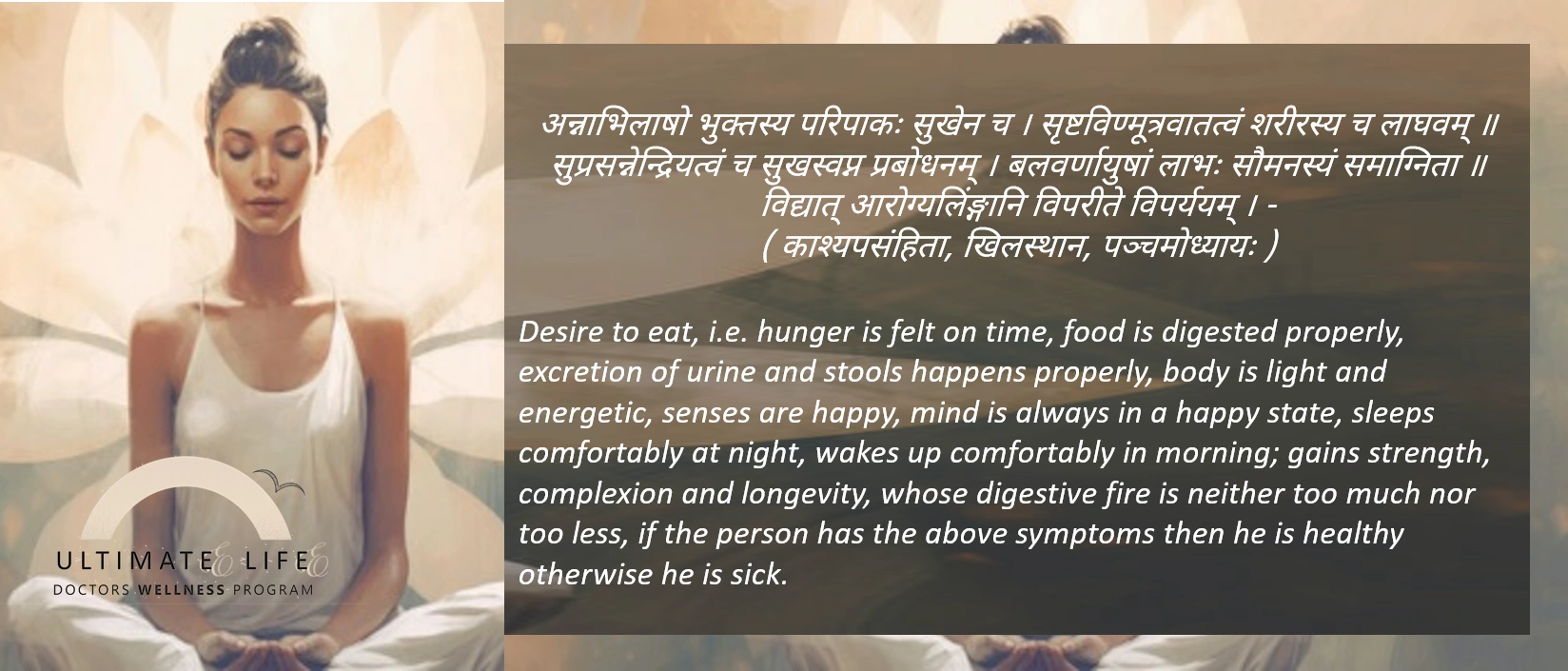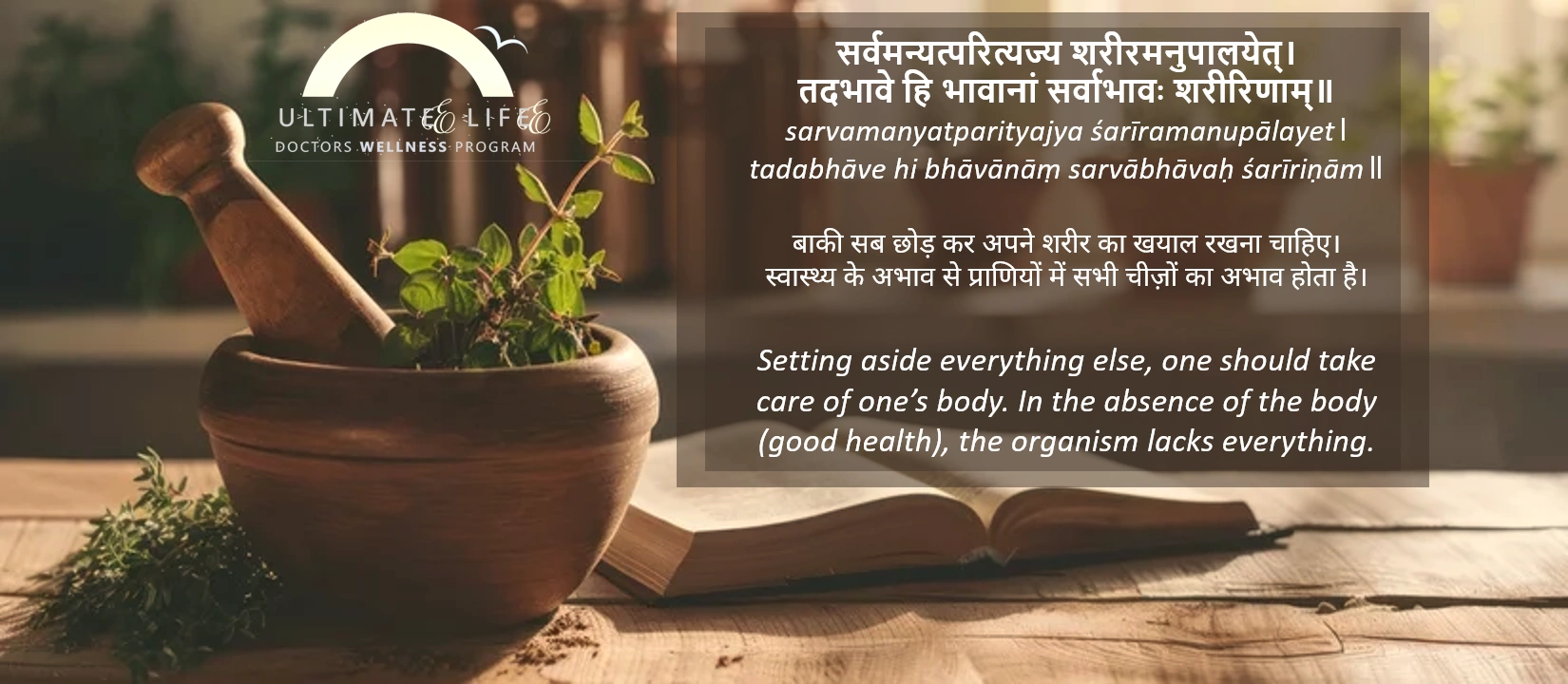Ayurveda and Diets

Ayurveda and Diets
Ayurveda, “the science of life,” is an intricate health care system. This holistic approach to healing is based on the twin principles of “Wholeness and Balance”. Ayurveda is equally about maintaining or preserving good health as it is about treating disorders.Ayurveda is a Healing tradition. Instead of following the one- cause-one-cure principle and focusing on current symptoms, Ayurveda recommend treating the person as whole i.e. body, mind, senses, emotions and spirit. Therefore diet, sleep, lifestyle, daily and seasonal routines and internal cleansing are just as, or more, important than herbs and their potions, in order to maintain good health.
Diet plays an important role in the maintenance of good health and in the prevention and cure of the disease; proper nourishment is the most important factor in the promotion of positive health.
Ayurveda believes that food we eat are carriers and balancers of the Vital Life Force i.e. Prana. Each food has its own unique characteristics of energy and properties through which it produces a specific effect on our body.
Ayurveda says that food is not only a mixture of all the basic macro or micronutients like proteins, minerals, fats and carbohydrates, but it is also something, which serves as a source of energy for the mind and the soul as well. Food and herbs are substance through which we bring nature's intelligence into our bodies.
Maharshi Susruta says: Food nourishes and gladdens the heart & directly contributes to once bodily strength. It improves the memory, appetising power, energy, natural strength of the mind, increases the Ojas & the life span.

Complexion, clarity, good voice, long life, understanding, happiness, satisfaction, growth, strength & intelligence are all dependent on quality of food & its intake”.
Ayurveda is the only science which suggest Ahara Vidhi Vidhana (or dietetic rules), specific to disease or illness for faster recovery. Different foods or herbs cause specific doshas to increase or decrease. During times of vikriti, or imbalance, the diet can be used to either decrease or increase the three doshas until balance is restored. The dosha balancing effect of a food is determined by its various qualities, e.g. taste, heavy or light, oily or dry, cold or hot, etc.
Ayurveda explains that dietary needs and digestion are affected by the rhythms of nature and the changes that occur in one’s life. Ayurveda suggests to make food choices that are based not only on original Doshik pattern (your Ayurveda body type) of human being, but also according to age, current season and place of living. Through establishing a disciplined pattern of eating healthy & nutritious foods, Ayurveda attempts to find a balanced lifestyle which provides mental, emotional, and physical stability for Sukh-ayu.
The Ayurveda approach to health is gentle and comprehensive. The endeavour is to seek and correct the source of problems. Best results from Ayurveda come to those who have patience, who are persistent, who diligently adopt the associated dietary and lifestyle changes needed, and take a degree of responsibility for their own well- being.